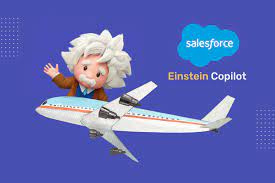Einstein Opportunity Scoring Explained
Utilize Artificial Intelligence to Optimize Opportunity Management: Einstein Opportunity Scoring Explained Let artificial intelligence (AI) empower you and your team to focus on the most promising opportunities and maximize deal closure rates. Each opportunity is assigned a score ranging from 1 to 99, providing valuable insights into its potential outcome. These scores are readily available on opportunity records and list views, ensuring easy access to critical information. Moreover, if you utilize Collaborative Forecasts, opportunity scores are also integrated into the forecasts page, enhancing visibility and forecasting accuracy. Einstein Opportunity Scoring is a versatile tool accessible to users with or without a Sales Cloud Einstein license. It provides a predictive assessment of the likelihood that an opportunity will result in a successful deal. For each opportunity score generated by Einstein, users gain visibility into the key factors influencing the score, both positively and negatively. In the Lightning Experience interface, opportunity scores are conveniently displayed on the compact layout of opportunity records or on the Details tab. Hovering over the score reveals a breakdown of the contributing factors, allowing users to understand why a particular score was assigned. For instance, a high score may indicate that the opportunity is progressing rapidly through the sales stages compared to others. For users navigating Salesforce Classic, the opportunity score is presented on the record detail of opportunity records, accompanied by the contributing factors. Customizing Opportunity Management with Opportunity Scores: Admins have the flexibility to incorporate the Opportunity Score field into various opportunity list views, empowering users to prioritize and manage opportunities effectively. In Lightning Experience, hovering over the score in list views provides insights into the factors influencing the score. However, in Salesforce Classic, users need to navigate to the opportunity record detail page to access this information. Furthermore, for organizations leveraging Collaborative Forecasts, admins can seamlessly integrate opportunity scores into the opportunity list on the forecasts page, enhancing forecasting accuracy and sales planning. Understanding Opportunity Score Criteria: The opportunity score is derived from a comprehensive analysis of various factors, including market demand, competitive landscape, potential return on investment, and resource requirements. By considering these criteria, Einstein Opportunity Scoring provides actionable insights to guide decision-making and resource allocation. Exploring Einstein Lead Scoring Criteria: In addition to opportunity scoring, Einstein offers lead scoring functionality to identify high-quality leads. By analyzing past leads, Einstein determines which current leads share similarities with those that have previously converted. Admins can customize lead scoring criteria by including or excluding specific lead fields based on their relevance to lead quality. Sales Cloud Einstein Scoring Hierarchy: Einstein Opportunity Scoring is part of Sales Cloud Einstein Scoring, which encompasses both opportunity and lead scoring capabilities. In this hierarchy, Einstein Lead Scoring falls under the broader umbrella of Salesforce’s Sales Cloud Einstein model. Together, these scoring mechanisms empower sales teams with predictive insights to optimize their sales processes and drive success. Einstein Opportunity Scoring equips sales professionals with predictive analytics to assess opportunity viability accurately. By leveraging AI-driven scoring, organizations can streamline opportunity management, prioritize resources effectively, and ultimately, enhance sales performance and revenue growth. Like1 Related Posts 50 Advantages of Salesforce Sales Cloud According to the Salesforce 2017 State of Service report, 85% of executives with service oversight identify customer service as a Read more Salesforce Artificial Intelligence Is artificial intelligence integrated into Salesforce? Salesforce Einstein stands as an intelligent layer embedded within the Lightning Platform, bringing robust Read more Salesforce’s Quest for AI for the Masses The software engine, Optimus Prime (not to be confused with the Autobot leader), originated in a basement beneath a West Read more How Travel Companies Are Using Big Data and Analytics In today’s hyper-competitive business world, travel and hospitality consumers have more choices than ever before. With hundreds of hotel chains Read more











